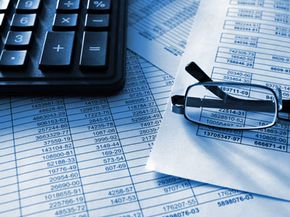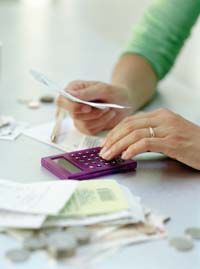Everyone knows that if you eat too much, it can lead to a heart attack. The same is true for your spending habits. If you consistently spend more than you earn, it could lead to a financial heart attack: out-of-control debt, foreclosure, bankruptcy and a lifetime of lousy credit reports. A personal budget is like a diet plan for your finances.
The purpose of a personal budget is twofold. It'll help you:
Advertisement
- Figure out exactly how much money you earn
- Figure out exactly how you are spending that money
A good personal budget requires an honest financial assessment. For many people, creating a personal budget is the first time they take a hard look at the way they spend money. It can be a little shocking ("I spend $115 a month on coffee?"), but also very satisfying ("I can save $100 a month by brewing my own!").
The overarching goal of a personal budget is to minimize expenses and maximize savings. By cutting down on unnecessary spending and increasing your monthly savings, you can put that extra money toward important long-term financial goals like:
- Lowering credit card debt
- Paying off loans
- Saving for a child's college education
- Investing in a retirement account like a 401(k)
- Saving for a large purchase (home, car, boat, vacation, et cetera)
Exactly how much money should you save each month? As much as you can afford. If you can design a personal budget that leaves you with an extra $20 at the end of the month, that's a good start. As you earn more money and trim more expenses, you'll watch that amount grow and grow.
Perhaps the most important ingredient of a successful personal budget is commitment. Budgets require the active participation of the entire family. If mom and dad are buying generic groceries while their teenage son is using the credit card to buy $200 sneakers, then the budget will never work. Everyone needs to be on the same page and working toward the same goals.
The first step in creating a successful personal budget is to carefully log your earnings and expenses. Learn more on the next page.
Advertisement



